Intro
Discover the ultimate Herpes Testing Guide, covering diagnosis, symptoms, and treatment options, including HSV-1 and HSV-2 testing, genital herpes, and cold sore diagnosis, to help you understand and manage herpes simplex virus infections effectively.
Herpes is a common viral infection that affects millions of people worldwide, causing a range of symptoms from mild to severe. Despite its prevalence, many individuals are unaware of the importance of herpes testing, the different types of tests available, and how to interpret test results. In this article, we will delve into the world of herpes testing, exploring the various aspects of this crucial diagnostic tool.
Herpes testing is essential for individuals who suspect they have contracted the virus, as it can help confirm the diagnosis, identify the type of herpes, and guide treatment decisions. There are several types of herpes tests available, including blood tests, viral cultures, and PCR (polymerase chain reaction) tests. Each test has its own strengths and limitations, and understanding these differences is vital for accurate diagnosis and effective management of the condition.
The importance of herpes testing cannot be overstated, as it can help prevent the spread of the virus, reduce the risk of complications, and improve treatment outcomes. Moreover, herpes testing can provide peace of mind for individuals who are concerned about their sexual health, allowing them to take control of their well-being and make informed decisions about their relationships.
Introduction to Herpes Testing
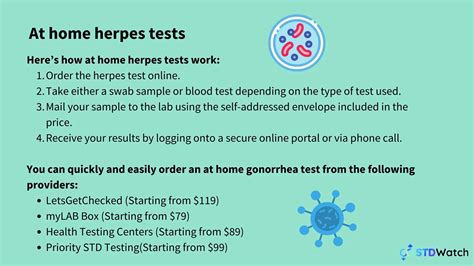
Types of Herpes Tests
There are several types of herpes tests available, each with its own advantages and disadvantages. The most common types of herpes tests include: * Blood tests: These tests detect the presence of antibodies against the herpes virus in the blood. * Viral cultures: These tests involve taking a sample of cells from the affected area and growing the virus in a laboratory. * PCR (polymerase chain reaction) tests: These tests detect the genetic material of the virus in a sample of cells or bodily fluids.Understanding Herpes Test Results
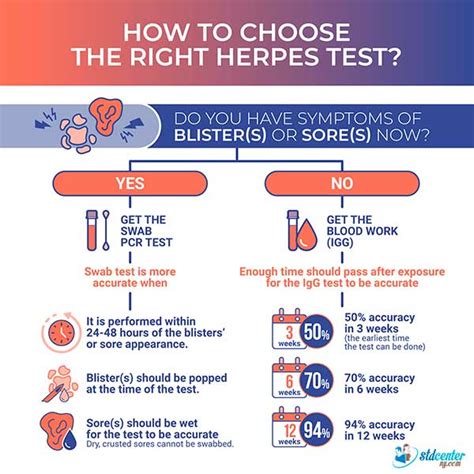
Factors Affecting Test Results
Several factors can affect the accuracy of herpes test results, including: * The type of test used * The timing of the test * The quality of the sample * The presence of other infections or conditionsPreparation for Herpes Testing
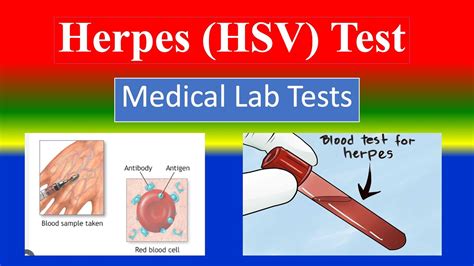
What to Expect During the Test
During the test, a healthcare professional will: * Take a sample of cells or bodily fluids from the affected area * Send the sample to a laboratory for analysis * Discuss the test results and provide guidance on treatment and managementTreatment and Management of Herpes
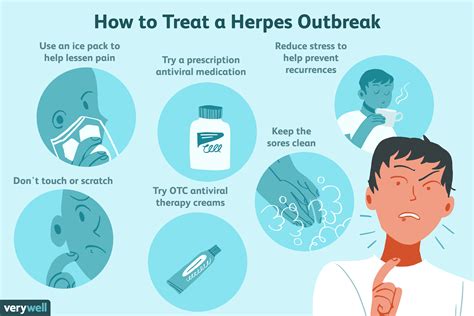
Lifestyle Changes for Herpes Management
Individuals with herpes can make several lifestyle changes to help manage the condition, including: * Practicing safe sex * Avoiding triggers that can cause outbreaks * Maintaining good hygiene * Managing stress and anxietyPrevention of Herpes
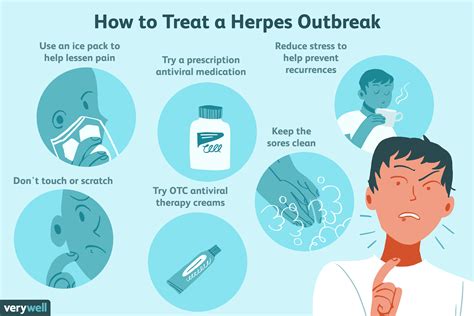
Risks and Complications of Herpes
Herpes can cause several complications, including: * Increased risk of HIV transmission * Neonatal herpes * Herpes encephalitis * Herpes keratitisHerpes Testing for Pregnant Women

Herpes and Pregnancy
Herpes can pose a significant risk to pregnant women and their babies, particularly if the mother has a history of recurrent outbreaks. The risk of transmission can be reduced by: * Taking antiviral medications * Practicing safe sex * Avoiding skin-to-skin contact with individuals who have herpesHerpes Testing for Newborns
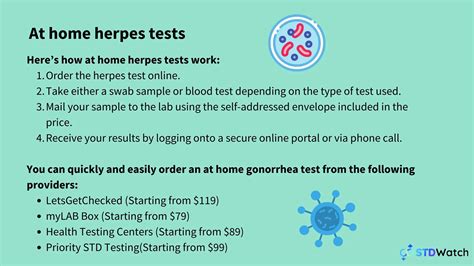
Neonatal Herpes
Neonatal herpes is a serious condition that can cause significant morbidity and mortality in newborns. The risk of neonatal herpes can be reduced by: * Screening pregnant women for herpes * Providing antiviral medications to pregnant women with a history of recurrent outbreaks * Practicing good hygiene and infection control during deliveryWhat is the most accurate type of herpes test?
+The most accurate type of herpes test is the PCR (polymerase chain reaction) test, which detects the genetic material of the virus in a sample of cells or bodily fluids.
How long does it take to get herpes test results?
+The time it takes to get herpes test results can vary depending on the type of test and the laboratory. Typically, results are available within 1-3 days.
Can herpes be cured?
+There is no cure for herpes, but treatment and management options are available to help alleviate symptoms and reduce the risk of transmission.
In conclusion, herpes testing is a crucial diagnostic tool for individuals who suspect they have contracted the virus. By understanding the different types of herpes tests, interpreting test results, and taking steps to prevent transmission, individuals can take control of their sexual health and reduce the risk of complications. If you suspect you have herpes, consult with a healthcare professional to discuss your options and determine the best course of action. We encourage you to share this article with others, leave a comment below, and take the first step towards protecting your sexual health.
